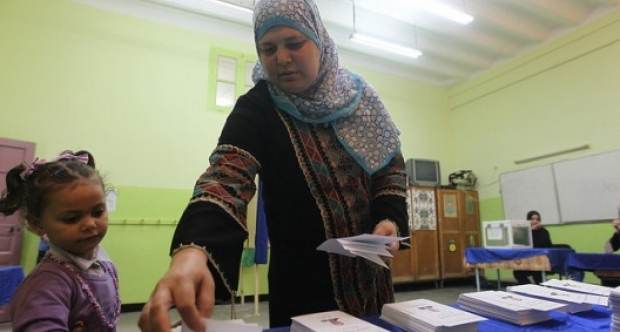 Despite the sporadic protests that shook Algiers during the Arab Spring season of 2011, the demonstrations calling for change brought forth nowhere near the same political transformation that rocked countries like Egypt, Libya, and Tunisia. Quite the opposite, not only did Algeria sidestep the tumultuous path of substantive reform, its authorities reinforced the regime with the reelection of President Abdelaziz Bouteflika for a fouth term, despite his obvious ailing health. How then did Algeria escape the wave of uprisings? Does enduring authoritarianism truly bring stability?
Despite the sporadic protests that shook Algiers during the Arab Spring season of 2011, the demonstrations calling for change brought forth nowhere near the same political transformation that rocked countries like Egypt, Libya, and Tunisia. Quite the opposite, not only did Algeria sidestep the tumultuous path of substantive reform, its authorities reinforced the regime with the reelection of President Abdelaziz Bouteflika for a fouth term, despite his obvious ailing health. How then did Algeria escape the wave of uprisings? Does enduring authoritarianism truly bring stability?
Mohsin Khan and Karim Mezran, senior fellows with the Atlantic Council’s Rafik Hariri Center for the Middle East, argue in a recently published issue brief, “No Arab Spring for Algeria,” that although a number of economic and historical factors kept the country from slipping into chaos, the relative calm remains only surface deep. Algerians, still reeling from the psychological impact of the civil war in the 1990s, prioritize stability, but the lack of political will to allow a more open space for debate breeds resentment that could destabilize the country. The authors provide recommendations for President Bouteflika to alleviate these tensions, but both acknowledge there is arguably more space to implement economic reforms than real political change.
Read the full issue brief here.
Image: An Algerian woman prepares to vote in the country's April 17th presidential election. (Photo: Flickr/Magharebia)
